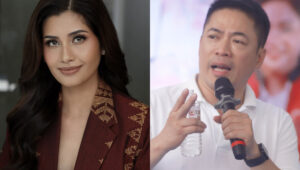Cabinet secretaries and campaign volunteers alike have told me that Philippine President Rodrigo Duterte is open to new ideas and serene about ceding full control to his appointees within their scope of work. In my own, limited interaction with him during the presidential campaign, he struck me as someone entirely at ease in his own skin. All of which makes one ask: Why is his foreign policy driven by longstanding resentment, and why does his signature governance initiative depend on an old, unsound idea?
Since his election, and especially since his so-called war on drugs provoked US President Barack Obama to raise human rights concerns, he has attacked the United States for its great-power hypocrisy and Obama for, well, being an American.
I think it is fair to say that the vigorous criticism of American presence and policy preceded any articulation on his part of the Philippine Constitution’s directive for the country to develop an “independent foreign policy.” The gut reaction to what President Duterte’s leftist supporters call continued American “domination” of the Philippines came first; in a remarkable disclosure, he even told a forum in China that he felt slighted many years ago when his application for a US visa was rejected. His own humiliation thus magnifies the worst excesses of American colonial rule in the Philippines; it helps explain why, in his first appearance on the world stage, in Laos, he was driven to lecture the summit of leaders on atrocities Americans committed against “my ancestor.” (He did not, however, include American complicity in the crimes of Ferdinand Marcos’ dictatorship, because Marcos’ descendants support him.)
The war on drugs he launched in the Philippines less than four months ago—his signature initiative—has already claimed thousands of lives, including the obviously innocent (children caught in the crossfire, overseas Filipinos back home for a quick visit). And yet the experience of other countries, including Thailand, has already discredited this take-no-prisoners approach. It simply does not work.
But here’s the supreme irony. President Duterte’s war on drugs is an American invention. It is an American travesty of justice, which he seems intent on imposing on his own country. Not least, it is an American failure, with which Mr. Duterte is unaccountably fixated.
It was US President Richard Nixon who, in 1971, designated drug abuse as “public enemy No. 1” and officially declared a “war on drugs.” “War” is the right word, because what Nixon started eventually mobilized government agencies, military assets and police resources in many countries in a massive attempt to stop the trade in illegal drugs. It has failed, it is failing, because the undertaking, understood precisely as a war, sees users as enemies, rather than victims who both need help and are a potent source of the help needed.
The excellent Vox special report on the war on drugs notes: “Over the past four decades, the US has committed more than $1 trillion to the war on drugs. But the crackdown has in some ways failed to produce the desired results: Drug use remains a very serious problem in the US, even though the drug war has made these substances less accessible. The drug war also led to several—some unintended—negative consequences, including a big strain on America’s criminal justice system and the proliferation of drug-related violence around the world.”
Why is President Duterte fixated on this American idea? For the same reason, I believe, that he thinks China is “good” to the Philippines, Marcos was the Philippines’ best president, and Beijing and Moscow continue to be politically aligned and would welcome newly nonaligned countries like his: His formative ideas were formed in the 1960s and 1970s, and now, at long last, he is in a position to make them real.
John Nery (@jnery_newsstand) is editor in chief of Inquirer.net and represents the Philippine Daily Inquirer in the Asia News Network.


